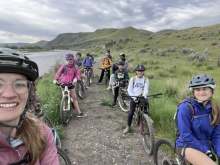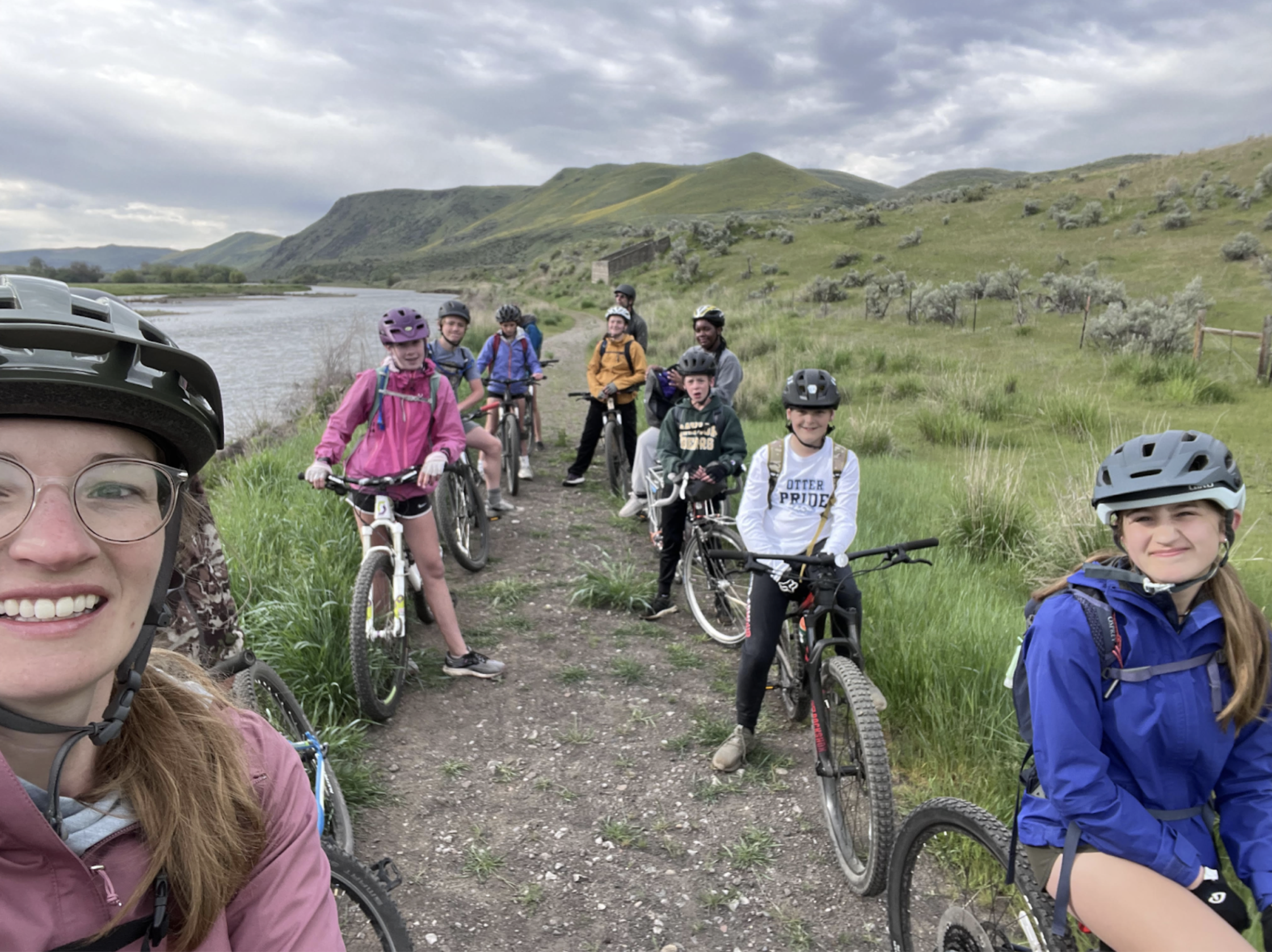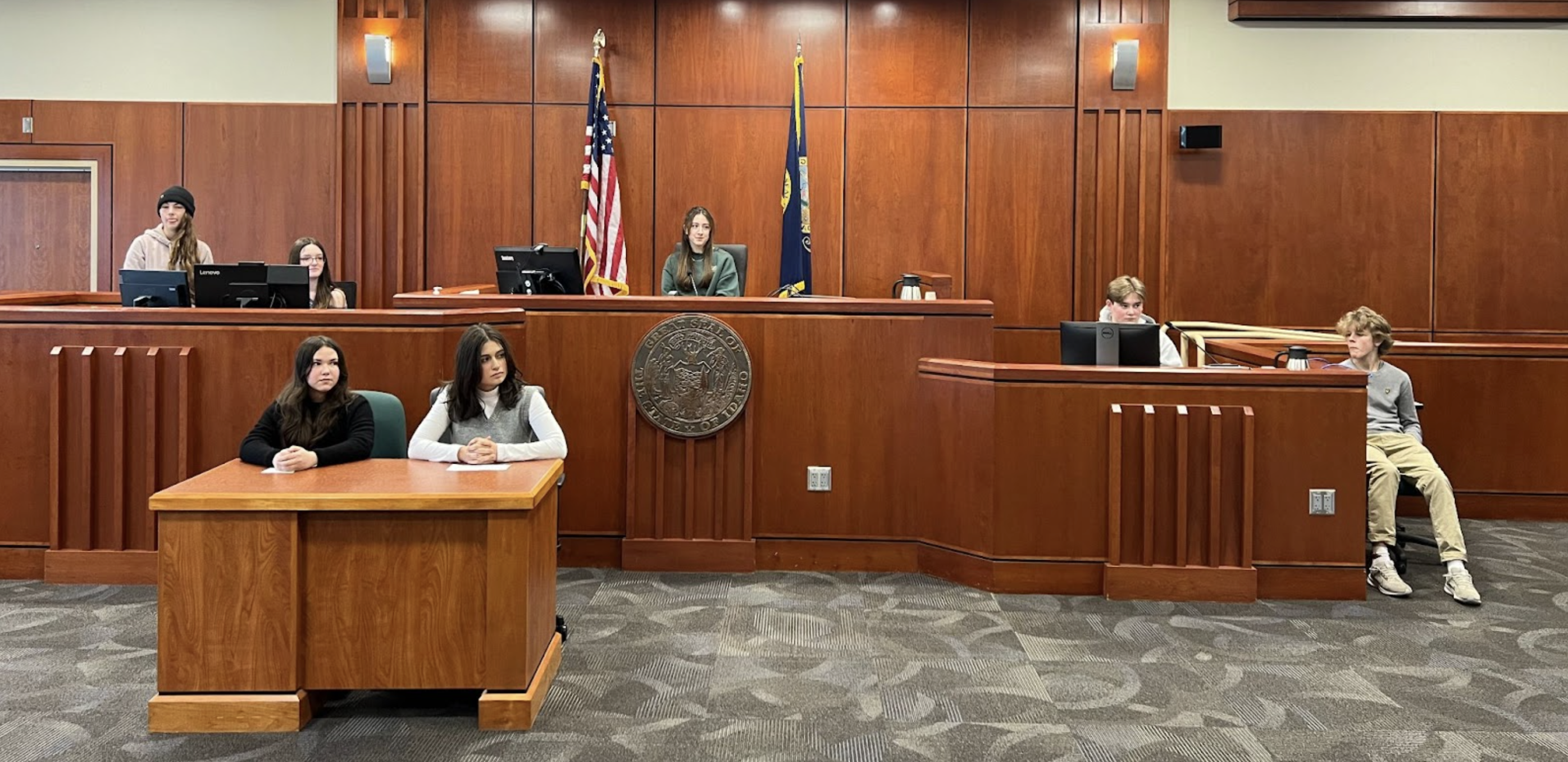
The following article was written by Meghan Arnold, MYP English & Humanities Teacher.
A topic that often gets brought up among teachers and administrators at Riverstone is the concept of rigor. What is rigor? What does rigor look like at Riverstone? Does this concept vary between grade levels? How can we promote this concept to students and parents?
The definition of rigor is, “...extremely thorough or accurate” (Oxford). Now, what could that look like at Riverstone when put into action? In short, rigor is to persevere through obstacles in order to reach mastery of a particular skill. Students often face rigor at Riverstone, but how does the practice of rigor differ between the outdoor education program and academics?
Beyond the confines of traditional classrooms, Riverstone offers a unique outdoor program that further enhances the rigor of our students' experiences. Whether they're navigating a challenging trail during a wilderness excursion or collaborating with peers to set up camp, students learn the importance of resilience, teamwork, and adaptability in real-world settings.
I decided to interview a student at Riverstone about their experience and practice of rigor on outdoor trips. For this interview, I contacted Vivienne C. (‘29), a Grade 7 Riverstone student. Here is what she had to say about the topic:
“I think rigor in the outdoor education program is demonstrated through the experience and skills students obtain on the trips. For example, from Grade 6 to Grade 7, there’s a big jump in how challenging trips are. It’s important to stay motivated and remember the skills you learned on previous trips so you are prepared to persevere and grow through new challenges. On my Weiser biking trip this year, I felt more confident in my ability to have a positive attitude toward overcoming challenges in the outdoors. I felt like I was able to rise to the occasion of motivating myself and my peers through new learning curves on the trip. By the end of the trip, I gained new skills that will assist me in future outdoor activities.”

From this student’s experience and understanding of rigor, we can draw conclusions to how exactly rigor manifests itself in the outdoor program at Riverstone. Within the definition of rigor, we see that the concept involves extremely thorough practice or repetition of something. Students are prepared for and gain experience in our outdoor education program as early as the elementary years at our school. Students go on their first outdoor, overnight adventure in Grade 2. In the Middle Years Programme (MYP) and Diploma Programme (DP), all grades go on 2 outdoor, overnight trips every year. For some of these students in the Primary Years Programme (PYP) or MYP, these trips are where they gain their outdoor skills. These early trips are new for students and they may face challenges that they will have to overcome. Through practicing new skills and facing new challenges, students will eventually gain mastery over these obstacles.
However, does this presentation of rigor look different academically at Riverstone? I decided to ask an expert in the matter: Grade 6-8 Humanities teacher, Stephanie Catz. Stephanie Catz not only provided details of what rigor looks like across the board academically at Riverstone, but also how it specifically looks in her own classroom.
“The biggest indicator of rigor in the classroom is ensuring that students have a growth mindset. When students understand that there are multiple paths to success in the classroom and that their sustained efforts are valued, encouraged, seen, and celebrated, rigor becomes the norm. We like to say, ‘I can do hard things. Challenging tasks are not a bad thing, it simply means you are at your learning edge’.
“Rigor is present in many of our classes and units throughout Riverstone, however, our most rigorous unit is National History Day where students are pushed to explore an area of study that they are intrinsically interested in. They’re required to find multiple primary sources and secondary sources, create a research question, transform it into a thesis statement, and produce a final product in 1 of 5 ways. Students also get to celebrate their hard work at the end of the unit by competing in the National History Day competition if they choose to do so. This allows students to not only go through a rigorous research unit, but they also get to showcase their determination and grit to judges within our community.”
A common word I noticed in both interviews is “growth”. At Riverstone, students understand that growth is gained through persistence and effort. They learn to embrace mistakes as opportunities for learning and improvement, rather than setbacks. Amid rigorous academic pursuits and outdoor adventures, Riverstone provides a supportive community where students feel empowered to take risks, explore their interests, and pursue their passions. Our dedicated educators serve as guides, mentors, and cheerleaders, encouraging students to reach for their highest potential.
Rigor isn't just about difficult tasks or high expectations; it's about the deliberate effort to stretch oneself academically, emotionally, and socially. As our students navigate and overcome obstacles, they emerge not only prepared but also equipped with the resilience, determination, and confidence needed to thrive in an ever-changing world. Riverstone isn't just a place of learning; it's a launchpad for future success, where rigor is not a barrier but a bridge to new opportunities, endless possibilities, and growth.



.png&command_2=resize&height_2=85)

















